Overlooked strategy games that are worth playing today
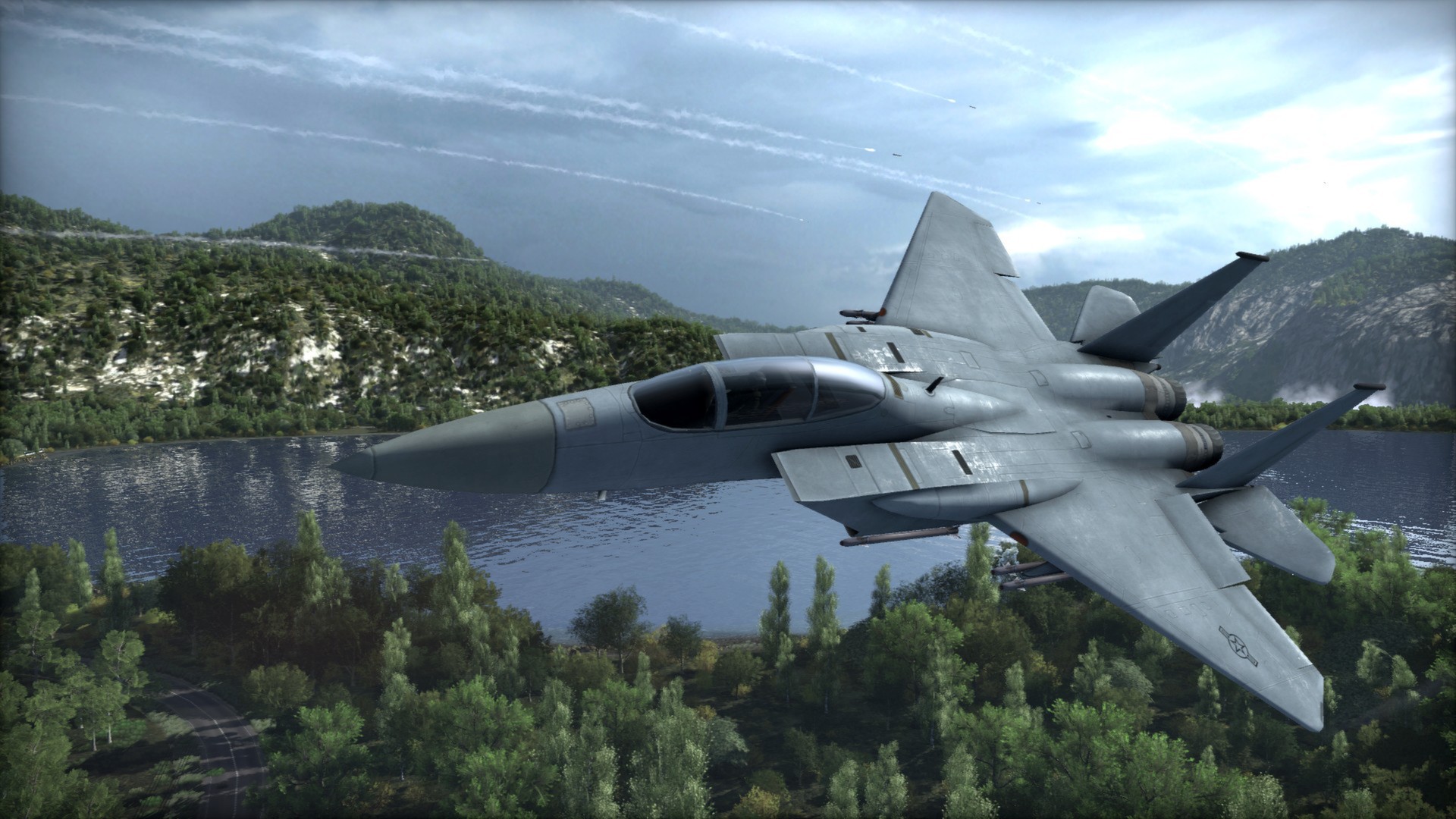
The idea behind our 'overlooked' lists is simple: if you were to find one in a bargain bin, or pop the ones you like the sound of into your Steam wishlist ahead of a sale, then you'd be able to quickly and cheaply build a collection of classics and curios that are still fun to play today.
We've previously rounded up some overlooked shooters and RPGs. Today, it's strategy's turn: a eclectic genre that bridges many styles and themes. We've been a bit liberal with the term, too—incorporating everything from turn-based tactics to city-builders in an effort to bring you a selection of games that are well worth investigating.
Want more of our thoughts on everything RTS and turn-based? Read our list of the best strategy games.
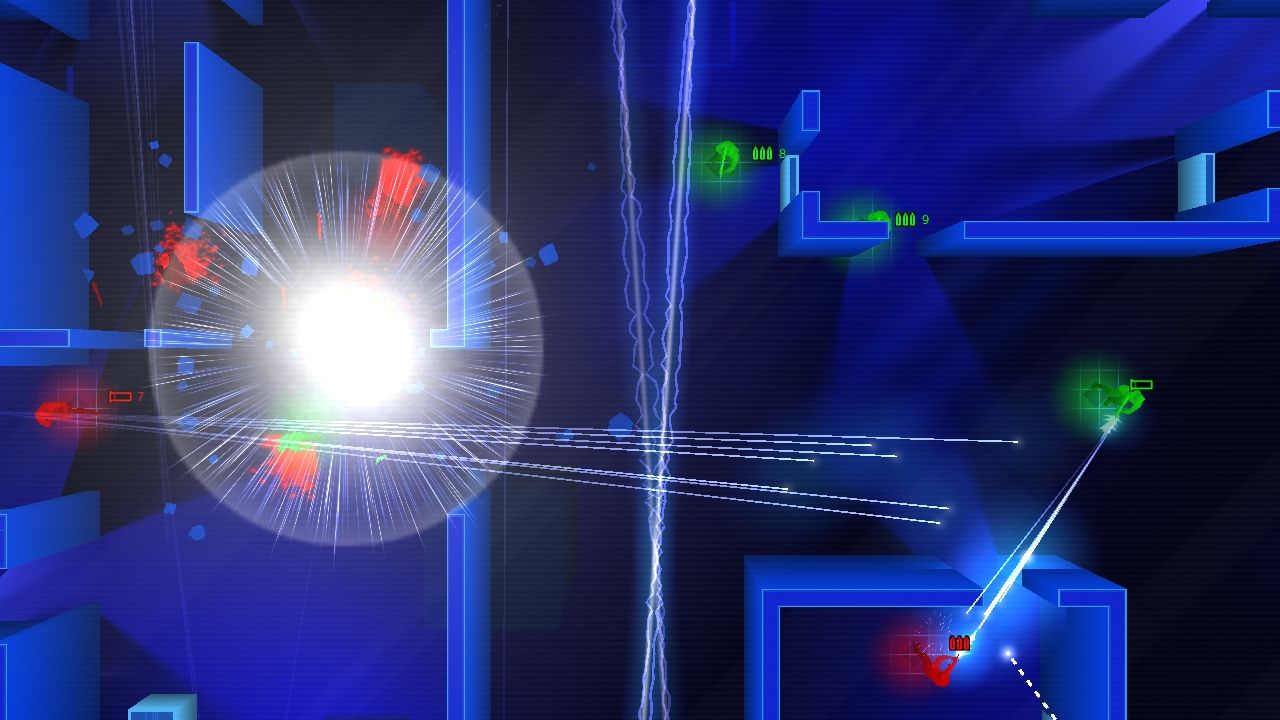
Frozen Synapse
A tactical squad shooter that unfolds in five second increments, Frozen Synapse combines the immediacy of a Counter-Strike bout with the thoughtful positioning and tactical consideration of a turn-based strategy game. Encounters are resolved speedily in digitised cobalt-blue environments that mimic industrial combat zones. You command your squad members by plotting routes, angling sight-lines and fussily dragging out pixel-perfect grenade throws.
Frozen Synapse is great because there’s a lot to master, even in this small-scale format. The presence of certain weapons can change the balance of a map significantly. Rockets can blow apart walls to allow for slick breach-and-clear manoeuvres or open up sight lines for a sniper. Learn to use shotguns well and you can clear maps at close range like a crack SWAT team.
Frozen Synapse comes with a 55-level single-player campaign, but shines in multiplayer, which lets you keep several matches on the go at once. Get really good and you can move up to dark mode, which hides enemy movements with a fog of war.
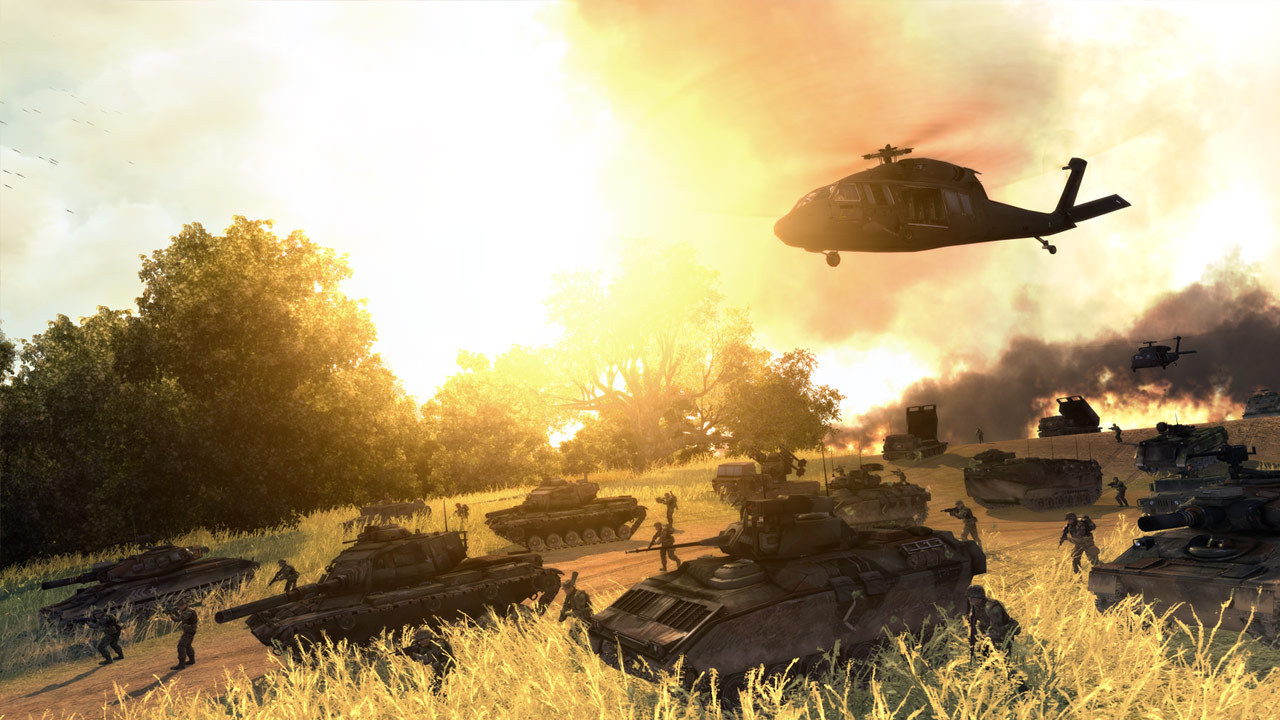
World In Conflict
It’s hard to find a multiplayer game of World In Conflict these days, but a surprisingly affecting solo campaign and some top-drawer nuclear explosions make this a good pick-up if you can find a copy.
Set in 1989, WiC imagines that Soviet forces have mounted a major invasion of Europe and the US. Working alongside the bumbling Captain Bannon, you must co-ordinate cover for retreating civilians and counter-attacks against invading forces. There are no bases, instead you requisition forces directly to the battlefield and work alongside AI allies to seize points and melt tank columns.
The dream was that in multiplayer players would take control of various aspects of an army—artillery, air support, heavy armour—and enact strategies co-operatively against other human-controlled armies. The idea felt like a potential turning point for RTS design—Dawn of War 2 would later accomplish something similar with its squad-based co-op campaign—but sadly World in Conflict never quite received the dues it deserved.
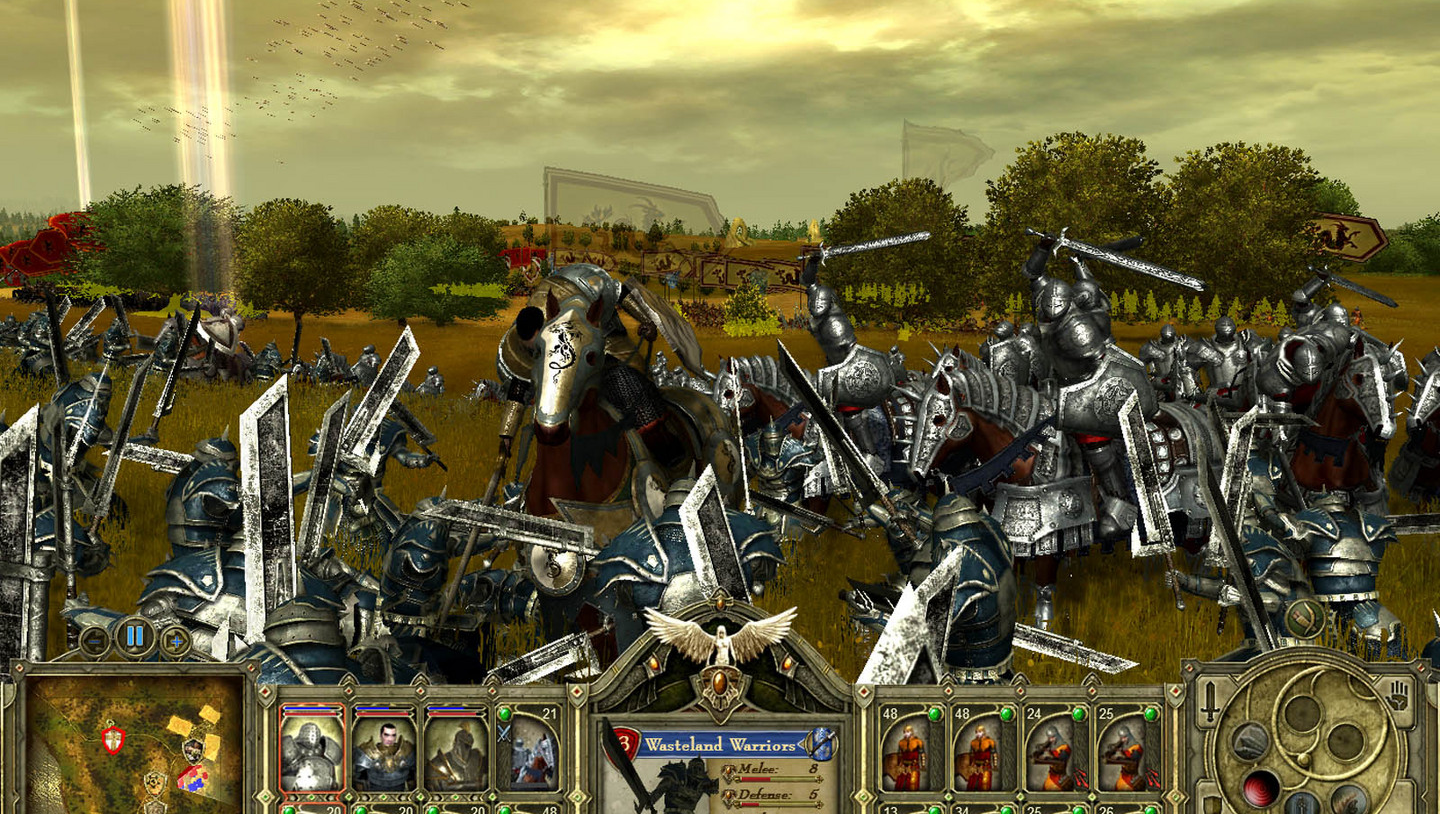
King Arthur: The Role Playing Wargame
King Arthur: The Role Playing Wargame blended magic and monsters with the Total War formula long before Total War: Warhammer appeared on the scene. It has its faults, but if you want to zap units with lightning bolts and field creatures of folklore in battle then there are few alternatives available. King Arthur introduces some neat hero-management to the strategic layer as well. Your heroes can be levelled up and assigned skills and spells as the campaign progresses, and you can embark on quests (presented as short adventure game skits) to unlock special battles. The campaign is set in Britannia during the age of chivalry. Over the course of the campaign you can decide whether King Arthur becomes a Christian king and favours knights, or whether he becomes a follower of the Old Faith and gains more mythical allies.
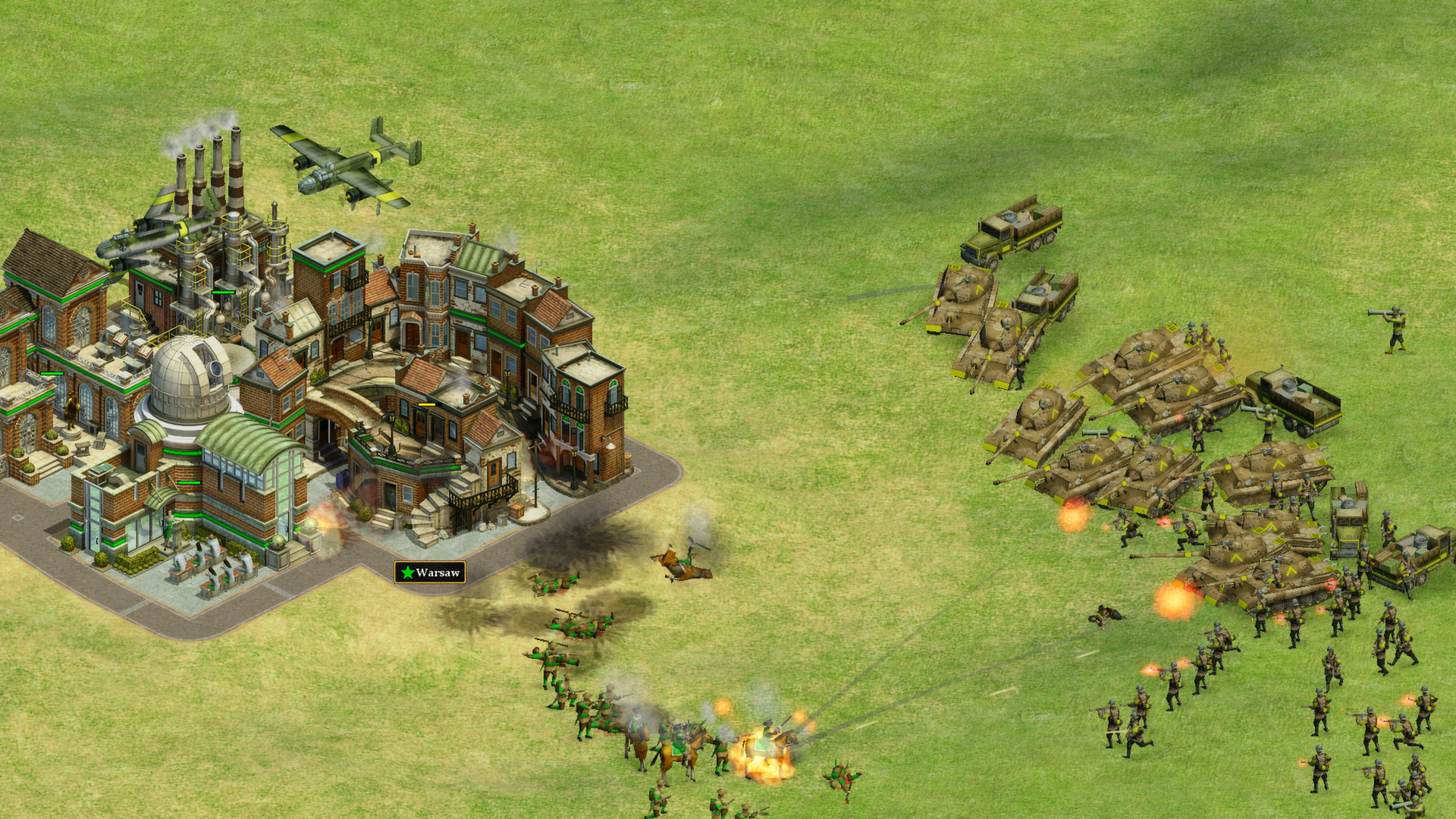
Rise of Nations
If you loved Age of Empires but haven’t played Rise of Nations then welcome to your next RTS. As in AoE, development along your civ’s tech tree pushes you through progressive historical eras, but Rise of Nations develops the idea with the concept of territory, established by castles and bases on your front line. Rise of Nations is still an RTS that lets you build huge armies and right-click the enemy base, but the large maps and shifting territorial boundaries provide an extra layer of tactical intrigue, and the bright art still looks beautiful today. The 2014 Steam version improves the graphics a little, and adds Twitch streaming features and ranked multiplayer.
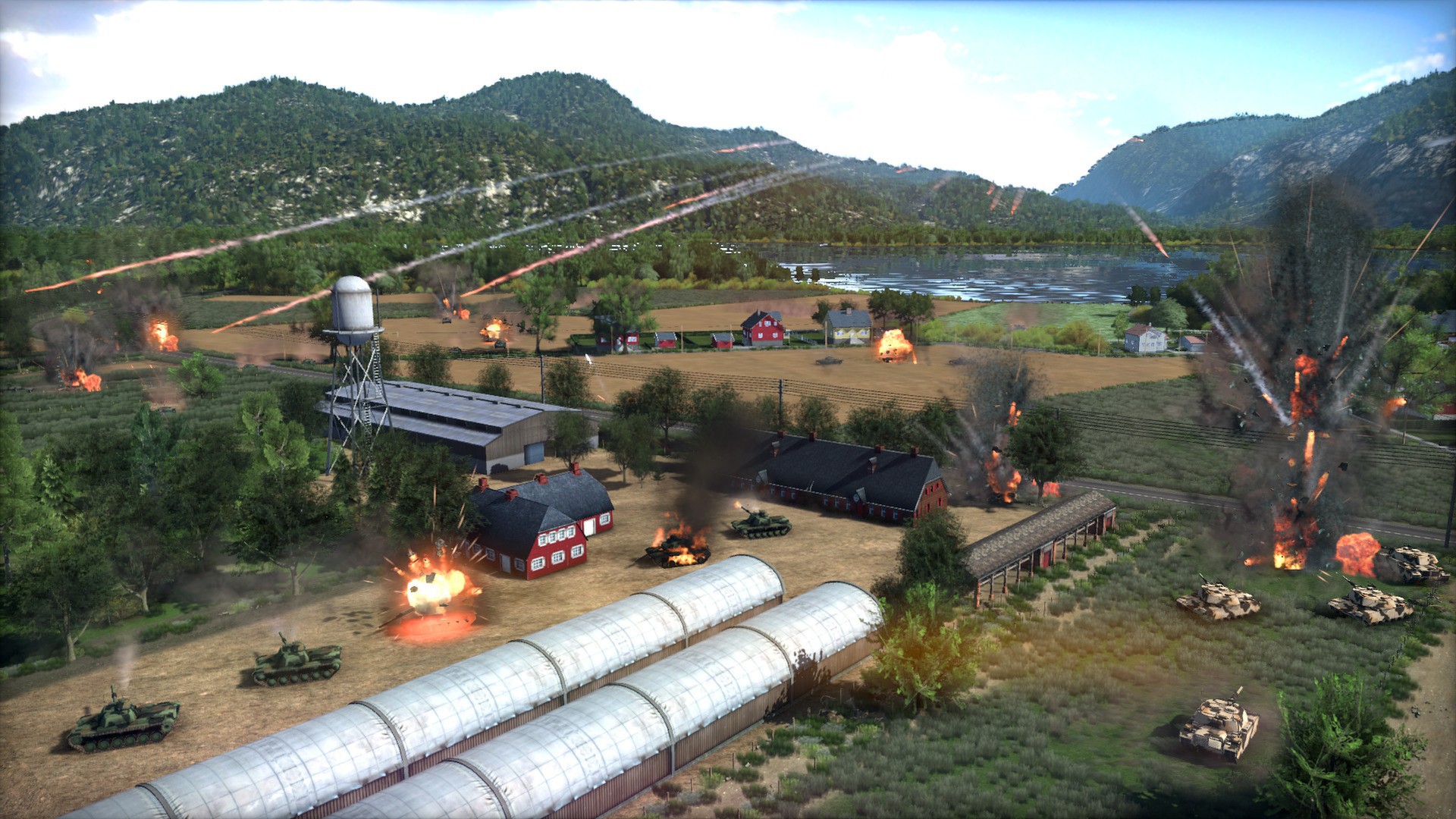
Wargame: Airland Battle
This really is an under-appreciated gem. Eugen’s gorgeous Cold War RTS depicts battle between NATO and the Warsaw Pact. It boasts an almost unrivalled breadth—with hundreds of different units and variations, deployed via a clever deck-building system that offers a staggering amount of tactical variety. It's primarily a multiplayer-focused strategy, and its community is extremely adept at taking advantage of any weakness in your army's composition. Expect a steep learning curve as you progress from the all-too-basic tutorial to the virtual battlefields of online. Persist, and you'll find one of the deepest and most engaging RTS games available.
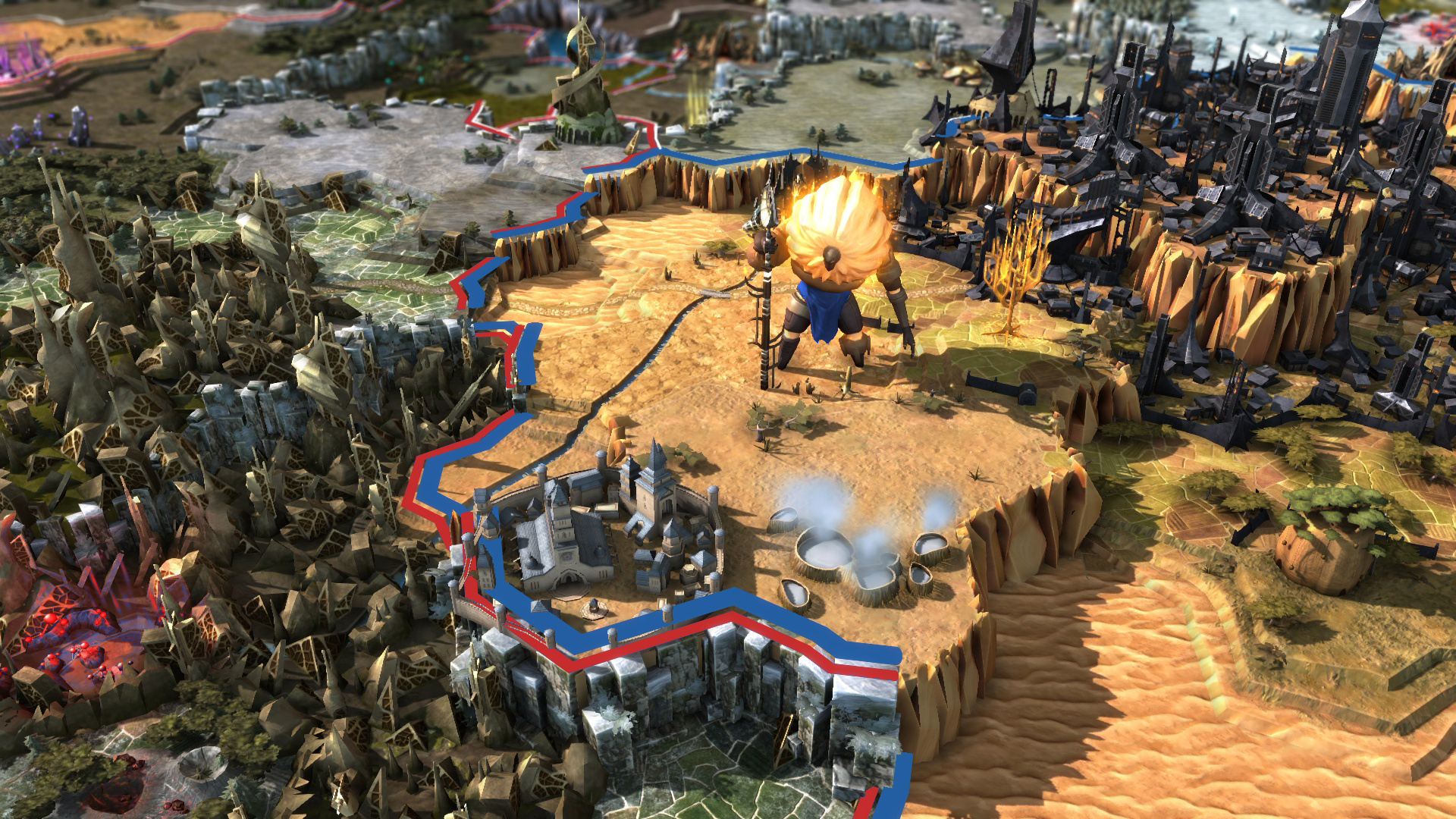
Endless Legend
Since Endless Space, Amplitude has been trying to inject new life into the staid 4X genre. Endless Legend is their finest attempt so far—a strategy that mixes beautiful presentation with some of the most interesting factions you could ever hope to conquer.
For instance, there's the Cultists of the Eternal End. They're a strange, long-necked bunch led by a Queen locked in an indestructible cube. They can only ever build one city, and so their growth is dependant on converting and assimilating minor factions. Or maybe you'd prefer to play as the peace dragons, or the trade nomads, or the drug elves? Even the simplest factions have a quirk or two that make them unique.
As a strategy, Endless Legend is impeccably designed. It streamlines and tweaks systems to seem less abstract and impressionistic. It's as if every part of the genre has been re-evaluated, shaking off the old, long-standing traditions in favour of something that works slightly better. Amplitude's 4X can't compete with Civ 5 (plus expansions) in terms of breadth or complexity, but Endless Legend's streamlined and easy-to-grasp structure makes for a fine alternative.
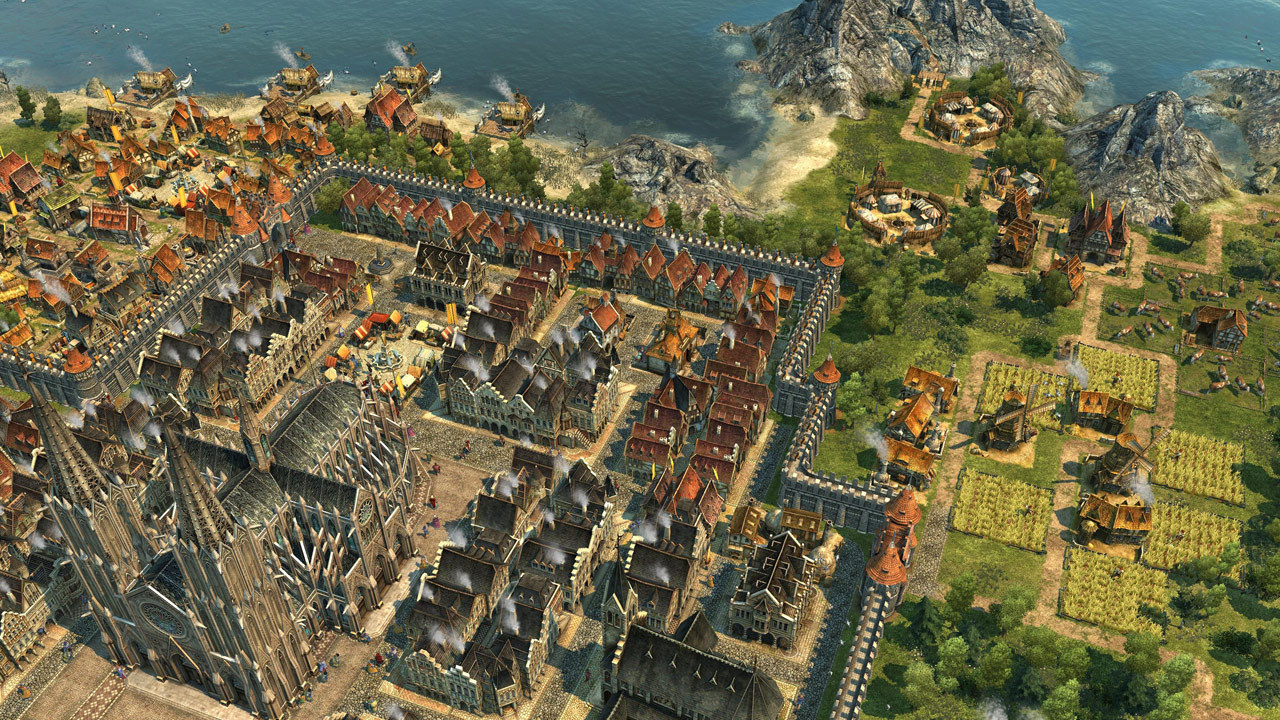
Anno 1404
Less of a city-builder; more of a city-maintainer. In Anno 1404—also known as Dawn of Discovery—you're put in charge of a settlement and tasked with building and growing its economic and cultural status. AI players on surrounding islands are similarly trying to expand and accumulate. It's a battle of economy, of trade, and of building really big cathedrals.
It's a fascinating strategic game, forcing you to consider how to acquire disparate resources for the completion of your projects. Trade, labour and exploration are all key to securing a steady flow of spice. These resources aren't just stockpiled away for the biggest projects—the wealth and well being of your citizens depends on their existence.
Eventually, and inevitably, you're able to command a navy to invade and ultimately destroy your opponents. But Anno 1404 isn't a combat game with an economic layer. It's an economic game with some combat.
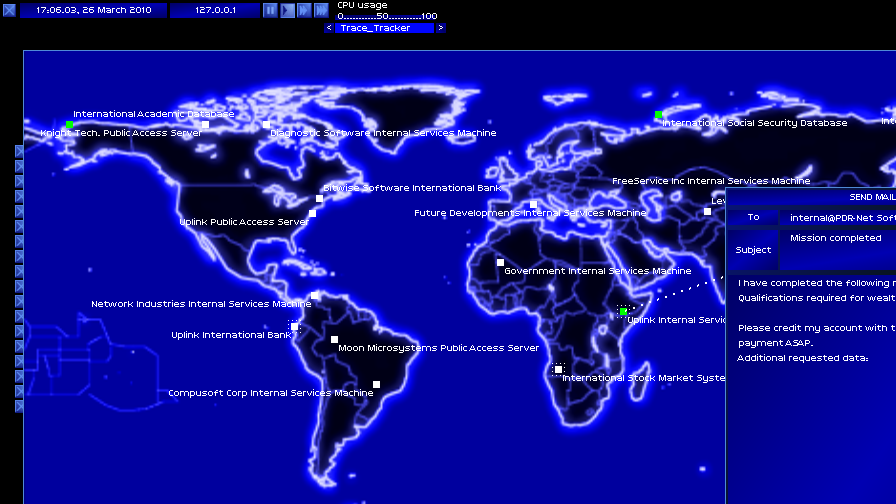
Uplink
A little bit of strategy, a little bit of RPG—all filtered through the perspective of '90s-era net culture. Uplink is in equal parts tense and ridiculous, and probably the best implementation of a hacking system in any game. It's not realistic, but it is dramatic. It's that atmosphere that makes for such a great challenge. You're making connections across modems, editing data and downloading files. All simple stuff, but it's accompanied by the trappings of illicit action: the beep of the tracer; the threat of FBI intervention.
Uplink is great because it's so singularly dedicated to its theme. It's a trick that Introversion would again use to great effect for DEFCON—another great strategy game that you should play. Here, you also have the use of a brilliant sandbox filled with missions, story strands and the chance to break out into your own objectives. It's a great playbox for internet mischief, and lets you properly relish the feeling of growing in power and skill.
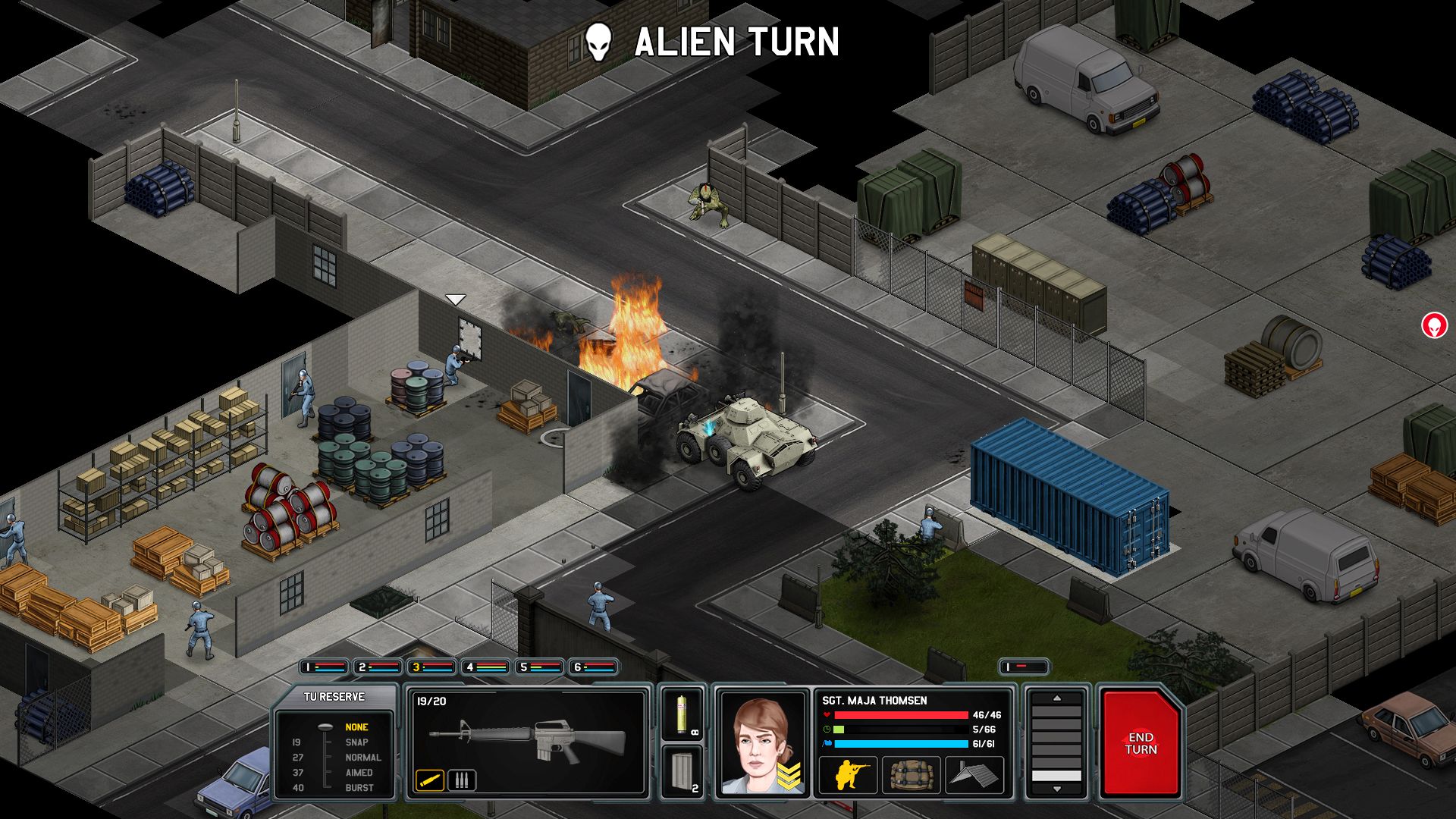
Xenonauts
MicroProse's X-Com: UFO Defense—or UFO: Enemy Unknown if you're being British and pedantic—is a tactical turn-based classic. It's arguably a masterpiece, but is increasingly let down by the fact that using its UI is just as big a challenge as defeating the alien invaders. The solution is Xenonauts. It's incredibly faithful to the systems that made X-Com great, but features a modern interface that's clean and easy to use.
The usability enhancements make it easier to focus on the tactics, and it's here that Xenonauts excels. As with X-Com, you're fighting to repel an advanced alien threat—taking out UFOs, scavenging equipment, capturing aliens, and reverse engineering tech in order to slowly build and advantage. It's an immediately arresting set-up, with a clear goal and natural challenge. Only care and clever tactics can save your squad from utter annihilation.
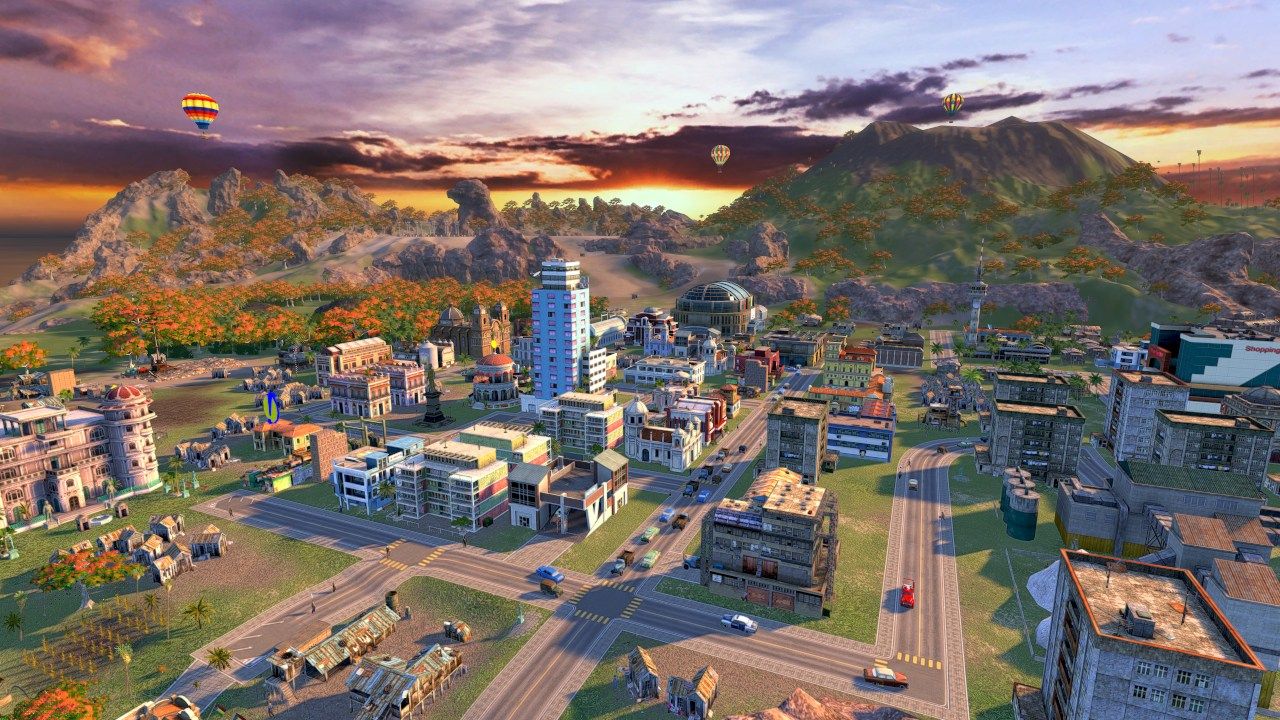
Tropico 4
The cheeriest city-builder about corrupt politicians, poverty and social oppression you could hope to play—unless you've played Tropico 3 or 5, both of which are pretty similar. You take the role of El Presidente: the ruler of an island banana republic, and a minor player in the realm of international relations. In creating your self-serving utopia, you're required to manage the population, the economy, and the job market, all while trying to raise some extra cash for your offshore account.
The irony of Tropico 4's theme is that, more often than not, it makes more sense to create a genuine paradise. You can do very bad things to your subjects, but doing so creates hostility that can escalate into open rebellion. Still, there's probably no harm in fixing an election or two, right? In addition to the infrastructural concerns, you're also required to balance the need of your electorate—represented by a number of factions, all with different and often contradicting needs.
We're highlighting Tropico 4 because it's half the price of Tropico 5 and remains a great introduction to the series. While it misses out on the series' newer additions, it does offer a slightly more satisfying take on tourism industries—and features an enjoyable expansion that's set in the modern day.
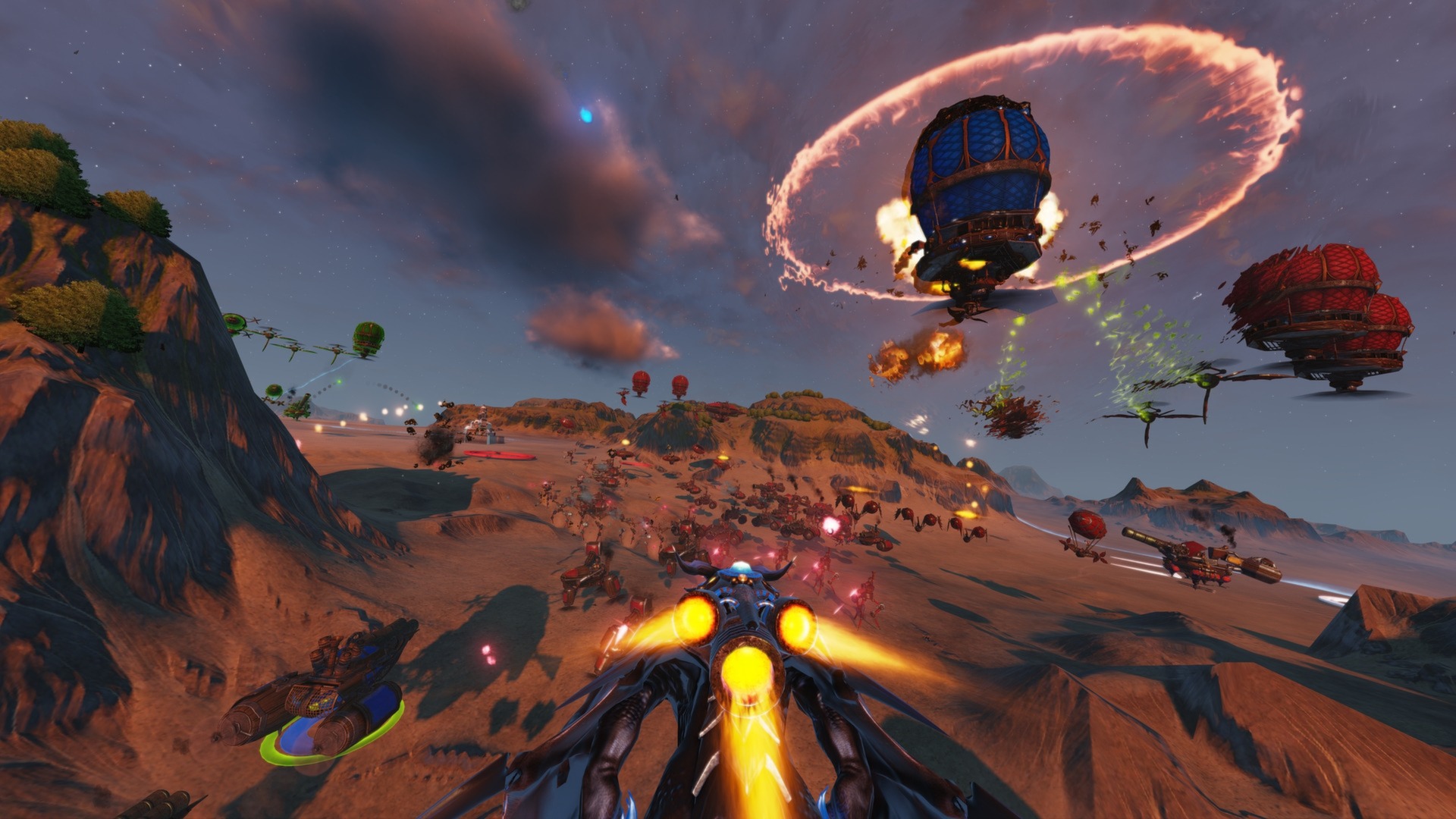
Divinity: Dragon Commander
This shouldn't require much in the way of explanation. Divinity: Dragon Commander is a strategy game in which you play as a dragon with a jetpack. Do you want to play as a dragon with a jetpack? Assuming you said yes—and let's be honest, you did—then Divinity: Dragon Commander is the game that lets you do that.
You want to know why it's worth your time as a strategy game? Really? We did mention the dragon and the jetpack, yes? Well, fine. It's a bizarre mix of King's Bounty-style RPG-ing, a Total War-esque turn-based overworld, and real-time strategy. Sure, the RTS elements are undercooked, but this is nevertheless an ambitious and entertainingly strange campaign from the makers of Divinity: Original Sin.
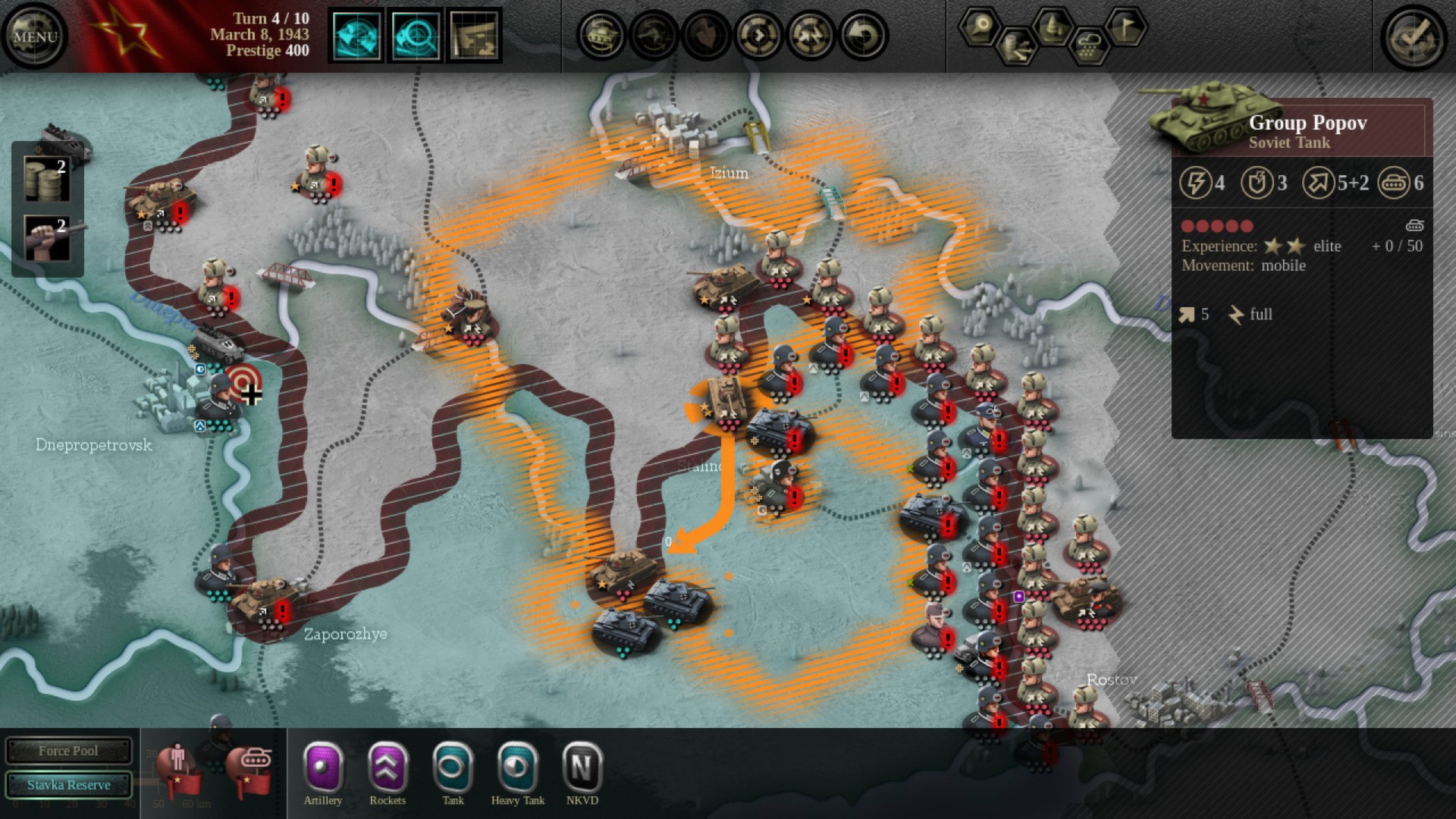
Unity of Command
Let's turn this one over to Tim Stone, who, in our review of Unity of Command, said:
"This game doesn't come with conventional AI. Buy it, and the Croatian devs mail you two giant, powder-filled jiffy-bags, one labelled 'Ferdinand Fuchs', the other 'Boris Bastardov'. Open these, add five gallons of vodka to the Boris bag and five gallons of schnapps to the Ferdinand, then stand back as two super-sly Ost Front generals materialise in front of you."
It's a turn-based strategy featuring AI opponents both difficult and full of personality. It's not just that they'll try to beat you, but that they'll do so in some surprising and unexpected ways. But while the cutesy art belies a fiendish strategy, but Unity of Command is also great for its degree of simplicity. Unlike many wargames, it's neither fusty nor impenetrable.
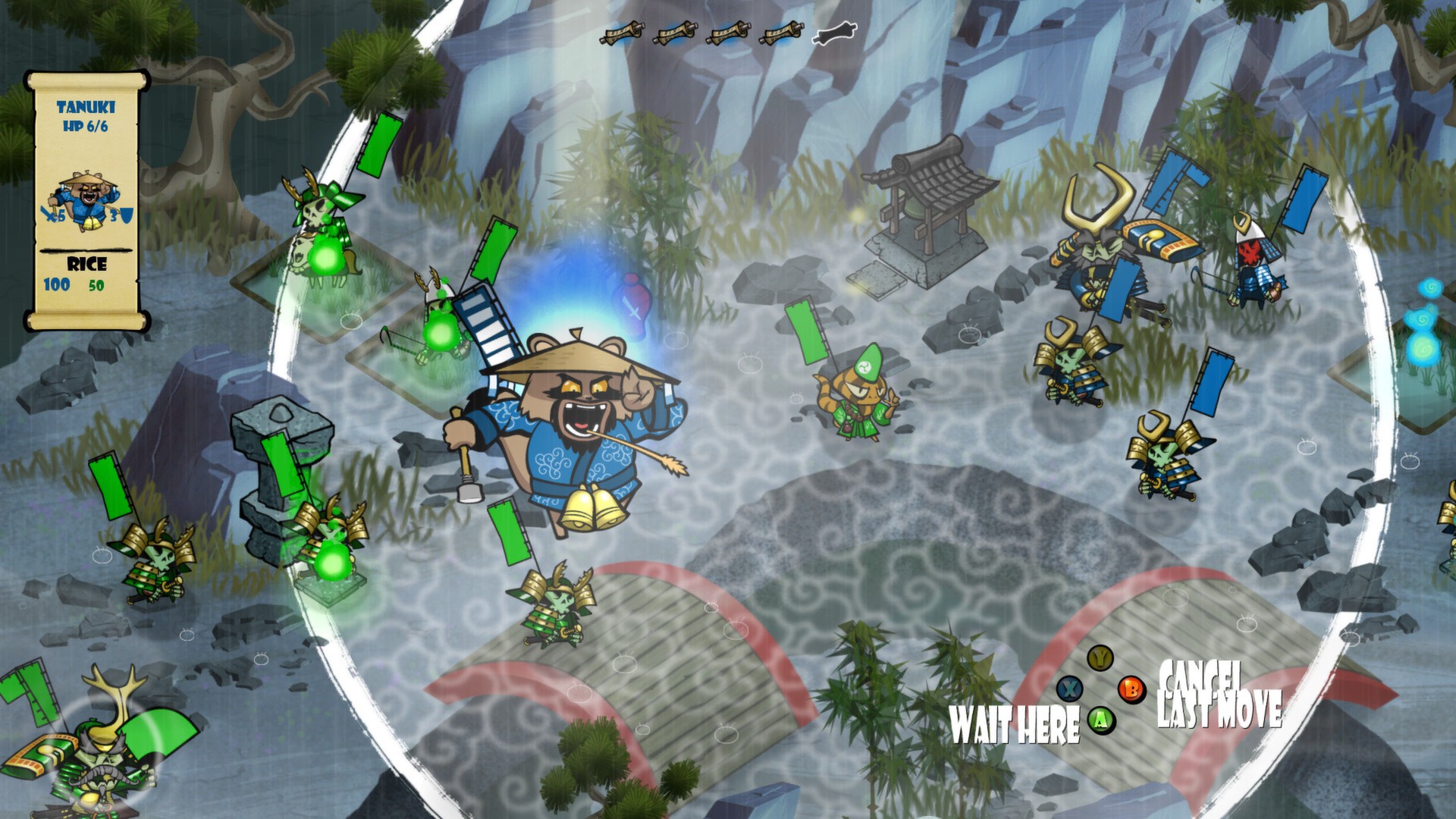
Skulls of the Shogun
More turn-based tactics, this time starring undead Samurai. Skulls of the Shogun is a fast-paced, arcade strategy. It's more Advanced Wars than X-Com, but features plenty of unique quirks. To spawn more units, for instance, you need to first 'haunt' a rice field—offering up a tasty sacrifice to the gods in exchange for more troops. On a tactical level, Skulls of the Shogun is notable for its movement radius offering a fine-degree of positional control. That gives you the chance to boot enemies off a ledge. More likely you'll want to dispatch them the old fashioned way—collecting their skull to upgrade your own troops.
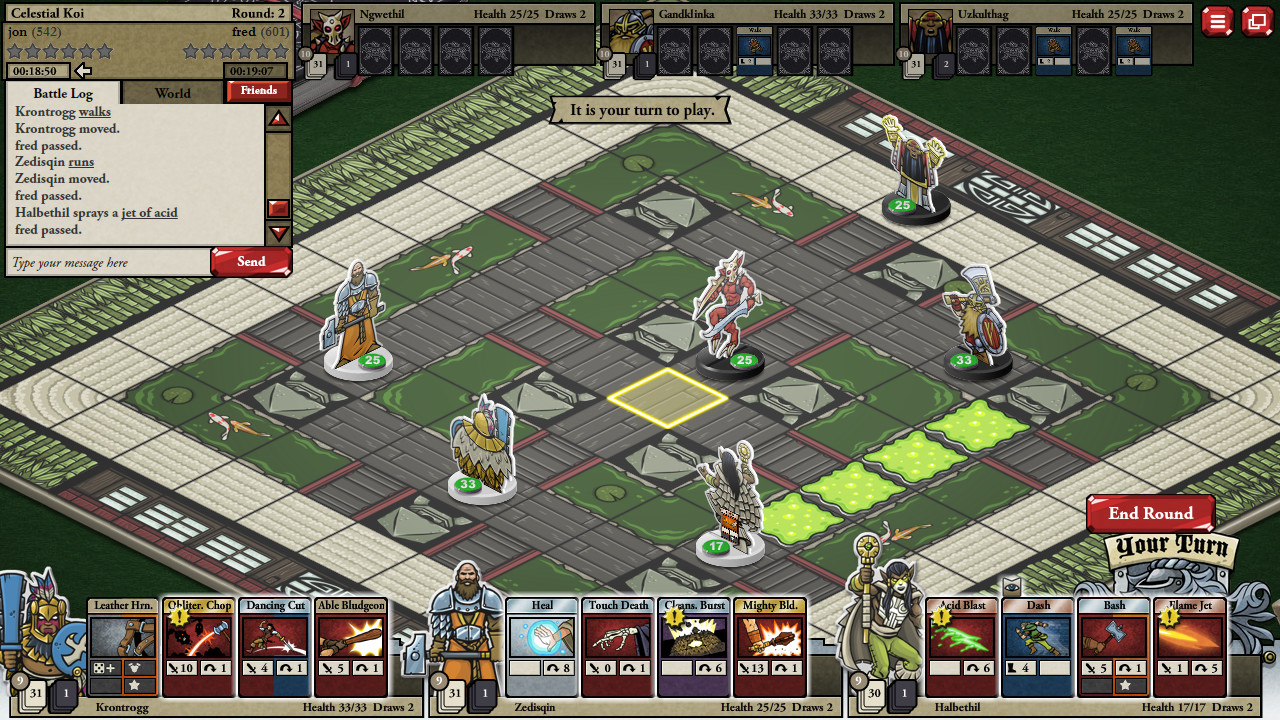
Card Hunter
A compelling mix of turn-based tactics and card collection. The elements present from both genres compliment each other well. The pain of a bad draw is lessened by the flexibility of the tactical movement, while the need for improvisation is heightened by the randomness of the cards. It's an elegant design that's beautifully presented. Card Hunter deserves your attention because as a brilliant free-to-play strategy with a series of exceptionally clever systems and a business model that isn't geared towards ripping you off.
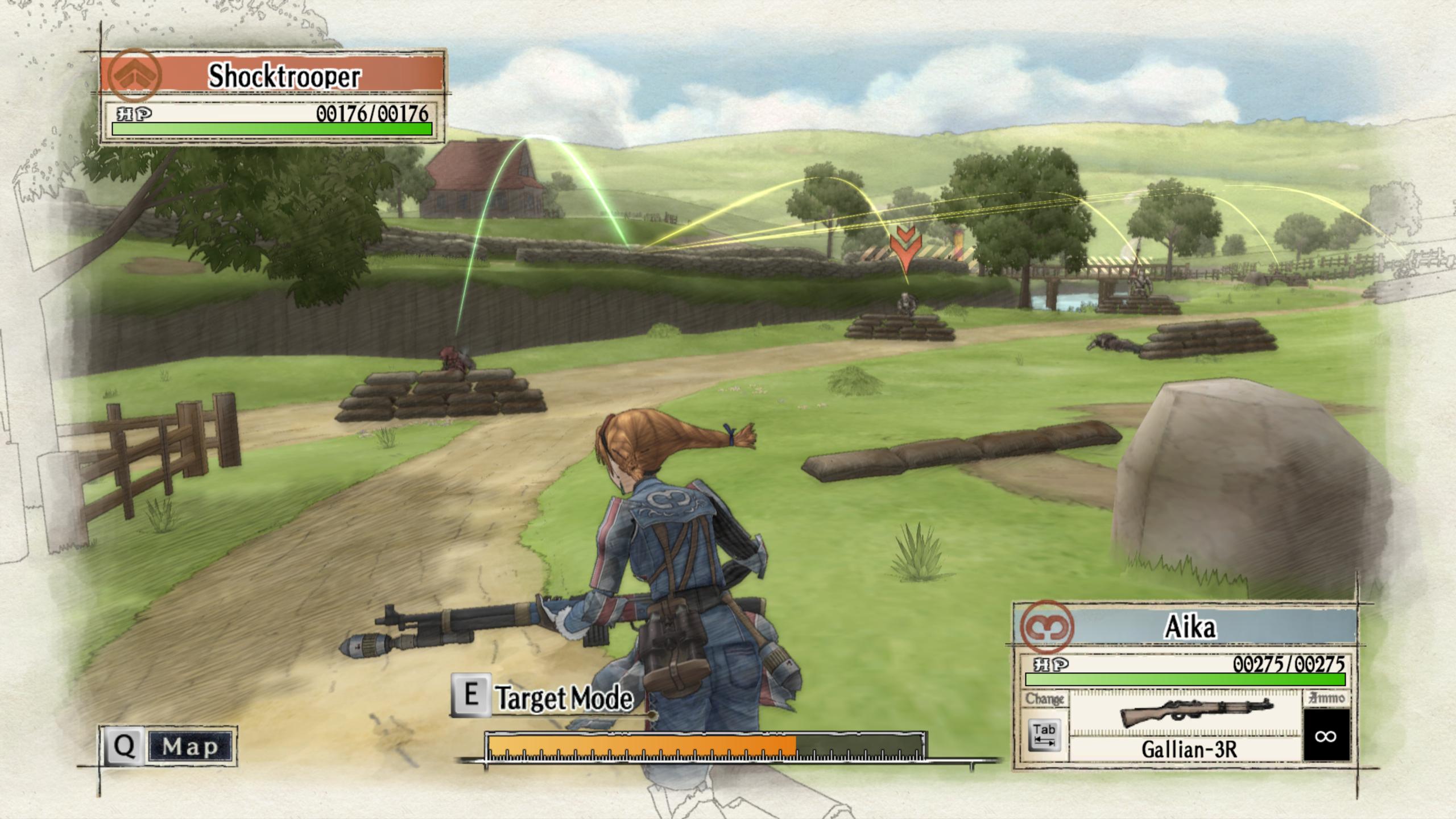
Valkyria Chronicles
The PC port has its minor problems, but Valkyria Chronicles is nevertheless an excellent and varied strategy game. Set during an alternate reality World War 2, it's part real-time shooter, part turn-based strategy and part JRPG. You command battles from a top-down map, and then control individual units from the field—able to move and fight based on their specific class. It's not enough to conceive a great strategy—you also have to execute it. Miss a shot, and you could undo all of your carefully laid plans.
Naturally, as a JRPG, the plot can be extremely melodramatic. Behind the tropes, this is a unique strategy experience that's well worth your time.

Part of the UK team, Tom was with PC Gamer at the very beginning of the website's launch—first as a news writer, and then as online editor until his departure in 2020. His specialties are strategy games, action RPGs, hack ‘n slash games, digital card games… basically anything that he can fit on a hard drive. His final boss form is Deckard Cain.

